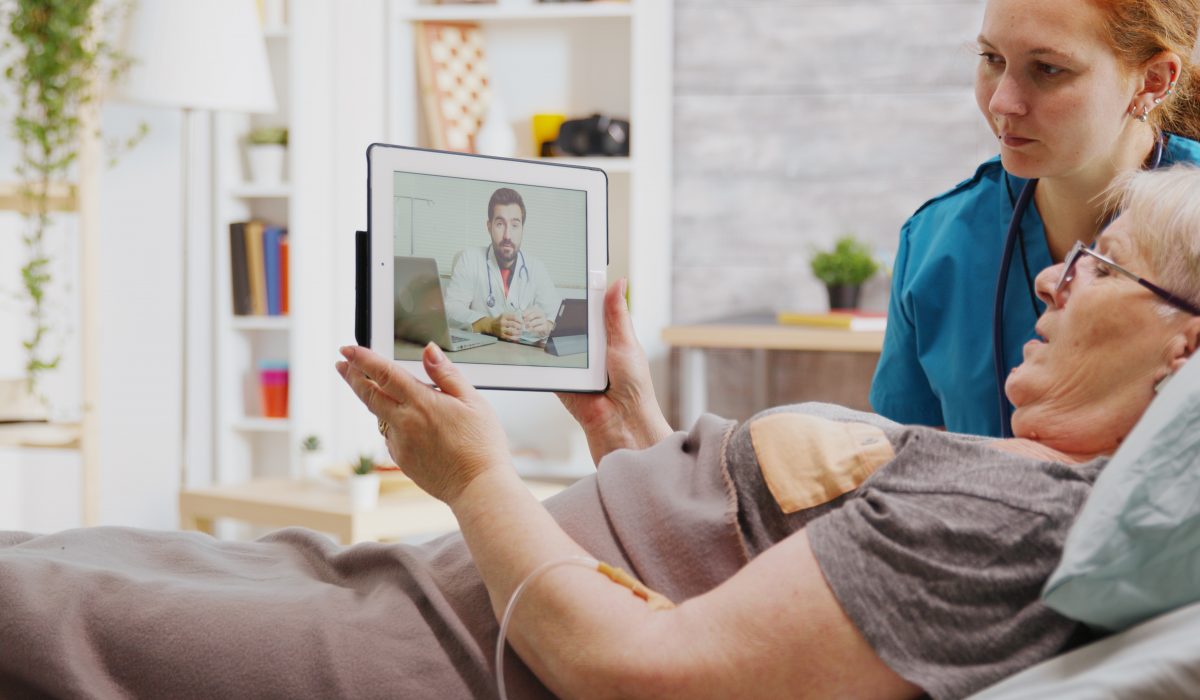https://advis.com/wp-content/uploads/2021/05/hospital-at-home.jpg
Along with the announcement of additional hospitals like Northwestern Memorial Hospital, Indiana University Health, UNC Health, and MetroHealth System, joining the program this spring, CMS launched the Acute Hospital Care at Home site on April 9, 2021, yet another sign of the growing success of the hospital-at-home program. This dedicated site provides an overview of the program, educational resources, quality reporting measures, and a growing list of hospital participants.
Additionally, the site provides a comprehensive review of the applicable weekly and monthly quality reporting requirements. Note, too, the new FAQ section; it offers answers/guidance to commonly asked questions regarding the program and the qualifications needed for participation approval.
We include here some of the more notable questions and answers:
Did all of these services have to be provided to the 25 patients who we have enrolled in order for our program to be considered experienced?
Not all services need to have been provided to 25 patients in order to be considered experienced. CMS anticipates that a variety of diagnoses will be treated by hospitals in their Acute Hospital Care at Home programs, and the expectation is that at least 25 patients who qualified for inpatient admission have been treated in a high-quality manner prior to the waiver request.
Would a program be considered if it has served a significant number of patients that varies between 1-2 in-person visits a day? What is the flexibility level?
If a program has served inpatient acute care patients in the past with only 1 in-person visit per day and has done so with high-quality results,
these cases would be counted toward the 25 patient experience level. However, regardless of the hospital’s past policies, each hospital acting under this waiver must comply to the requirements in the request template.
Scenario: Our Hospital at Home Program has cared for over 80 patients within the past 2 years. We admit our patients directly from their homes into our H@H program. We use an accepted leveling process to determine the level of care. Would we be considered the first or second waiver request?
Experience treating inpatient-level patients with an accepted patient leveling process can be used to qualify for the expedited/ experienced waiver request pathway. If approved, your hospital will need to adjust its admission policies to meet those listed on the waiver request template.
If my hospital system has multiple hospitals providing acute hospital care at home, should I submit a waiver request for each hospital?
Yes. CMS monitors inpatient care at the hospital level, and a separate waiver request is required for each facility. However, if the services are run by the same group within a health system, CMS understands that each request could appear very similar.
Does my organization have to report to OASIS to participate in the Acute Hospital Care at Home initiative?
No, this program is designed for patients who meet acute inpatient or overnight observation admission criteria for hospital-level care. The patient’s home is considered part of the hospital during admission.
There are also signs of this growing trend at the state level with inquiries into the recognition of this program under state Medicaid programs and state licensure regulations. For example, Vanderbilt University Medical Center has officially requested consideration from the TN Board of Health Facilities to allow the temporary state waivers to proceed past the emergency to continue the provision of these services to non-Medicare patients. Vanderbilt representatives
presented comprehensive data illustrating the program’s success and the anticipated utilization of this program post-pandemic
Overview of the Program
During November 2020, in an effort to expand its Hospital Without Walls program, CMS granted hospitals the regulatory flexibility to provide eligible patients with acute care at home. Hospitals can enroll in CMS’s ‘Acute Hospital Care at Home’(HHC) program by filing waiver requests from Hospital Conditions of Participation criteria which otherwise require nursing services to be provided on-site 24 hours a day, 7 days a week. Hospitals must also meet additional requirements to participate in the program. The additional requirements address protocols for at-home care, frequency of patient evaluation, patient data review, and patient safety metrics. The program allows hospitals to receive Medicare fee-for-service reimbursements for home-based services provided to eligible patients.
Research on pre-existing hospital-at-home programs suggests that the model reduces costs. Those costs are normally associated with the provision of care, reducing readmissions, reducing mortality rates, and supporting patient recovery. However, pre-pandemic hospital-at-home programs were largely unavailable due to the challenges that hospitals faced in receiving reimbursement from CMS and other payors for at-home services. The current HHS program wherein CMS waivers qualify services for reimbursement has garnered a significant amount of interest from providers around the country. As of January 2021, 96 hospitals in 26 states have enrolled in the program.
While CMS installed the program as a response to COVID-19 surges, program benefits may be applied beyond the current public health emergency. Hospital participants, especially those that may supplement the program with Home Health capabilities, are hopeful that the program is here to stay. As a result, CMS and private payors are demonstrating interest in continuing to provide reimbursement for hospital-at-home services post-pandemic.
While the program is popular with both providers and payors, uncertainty persists around whether CMS will extend the waivers beyond the current public health emergency. Although recent communications with regional CMS offices have alluded to keeping the program post-COVID, CMS has not issued any notices or proposed guidance regarding the program’s extension. Stay tuned for further updates. Advis monitors all guidance from CMS regarding
the Hospital-at -home program’s extension.





